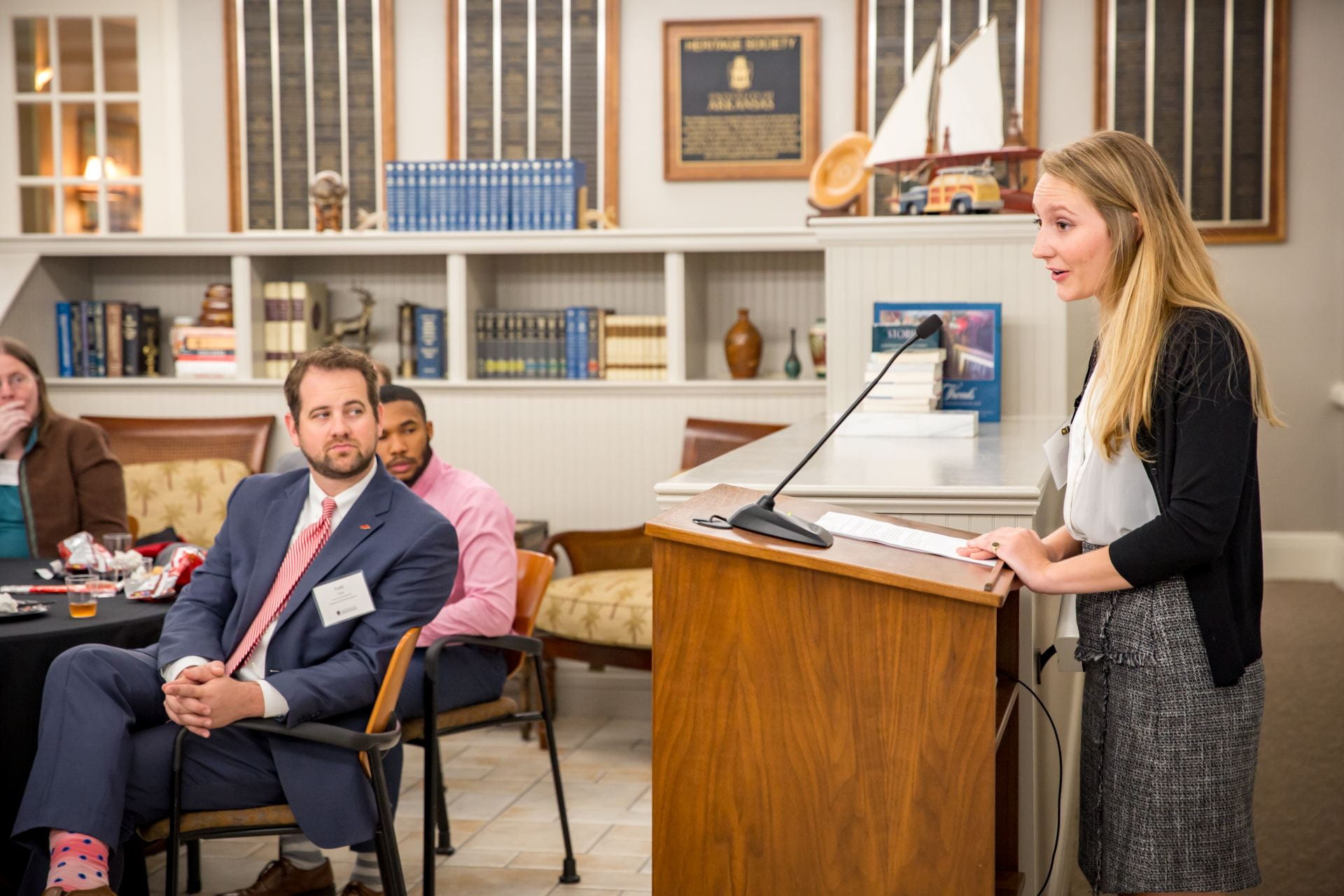By David Cajias Calvet
The views and opinions expressed in the Graduate and International Ambassador Blog are those of the authors and do not necessarily reflect the official policy or position of the University of Arkansas.
Have you ever found yourself in this position before a presentation or a speech? Your mouth feels as dry as the desert, your hands are cold and clammy, and your voice is shaking when you start to speak… Your heart is beating so fast it might leap out of your chest! What was your opening line again?… Suddenly your brain has turned to scrambled eggs and everyone is watching.
This has happened to more of us than you think! It used to happen to me, too. I am a current international graduate student at the University of Arkansas, and I can tell you from experience that speaking in a language that is not your own mother tongue can double the stage fright in front of an audience. If you’ve been in the same boat, then you may have thought at some point: “If only I had been born a great speaker!” Well, the fact is that great speakers aren’t born—they are made.
How to Deceive Yourself into Becoming More Confident
I am currently working on my MA in English with a concentration in Rhetoric and Composition and public speaking is at the center of my research. I’ve been researching the ways in which people can trick themselves into becoming compelling speakers. This is where the concept of self-deception comes in.
In a nutshell, self-deception is a process through which people deny unwelcome information by putting it in the back of their minds while storing beneficial information at the forefront. I’ve been researching the influence of self-deception on students as a useful tool for boosting their self-confidence to become better speakers. In my current position as a Business Communication Consultant at the Sam M. Walton Business Communication Lab, my central focus is to help students with presentations and pitch competitions where confidence is everything.
“…it is not a matter of faking it till you make it, but rather faking it till you become it.”
I recently coached one such U of A student who didn’t consider herself to be a confident speaker when we started. This lack of confidence would translate into semi-robotic presentations, as she had to memorize complete scripts to avoid stuttering or drawing a blank. Through working with this student, she eventually persuaded herself into gradually developing the confidence she was lacking. By the end of the semester, she had become a force to be reckoned with!
See Yourself as You Want Others to See You
So, how did she get there? Believe it or not, the first step to becoming a better writer and speaker is believing in yourself, as cheesy as it sounds! The basic idea behind this method is that a speaker will seem more credible when she learns to play a ‘version’ of her ordinary self when giving a speech.
I teach students how to embrace specific traits in their personalities while pushing other traits to the background. If you admire someone who speaks as if they’re totally relaxed in front of an audience of a thousand people, emulate this trait—internalize it and pretend that you already possess the same skill. If you find yourself losing your train of thought easily in stressful circumstances, put this characteristic in a box at the very back of your mind and don’t give it any attention. Essentially, to become a persuasive communicator, you need to deceive yourself into it. To paraphrase Harvard Business School professor Amy Cuddy in her 2012 Ted Talk: it is not a matter of faking it till you make it, but rather faking it till you become it.
How to Get Started
The process toward becoming a more confident and compelling speaker begins with students recording, analyzing, and revising their scripts and delivery to reflect the version of themselves they want to be—confident, assertive, and persuasive communicators. This allows students to focus on the content of the speech while delivering it. This eventually helps boost the speaker’s spontaneity. When it comes to the student I was coaching, her breakthrough came when she learned to play to her own strengths—she knew she could be confident in some contexts, so she had to learn how to emulate that confidence in an unfamiliar context like that of a pitch competition. That way she became more relatable to her audience while growing comfortable in her own skin as a presenter.
Our brains are muscles, and we can train them to work to our advantage. Trick yourself into believing you’re an amazing speaker, and before you know it, others will believe it, too!













